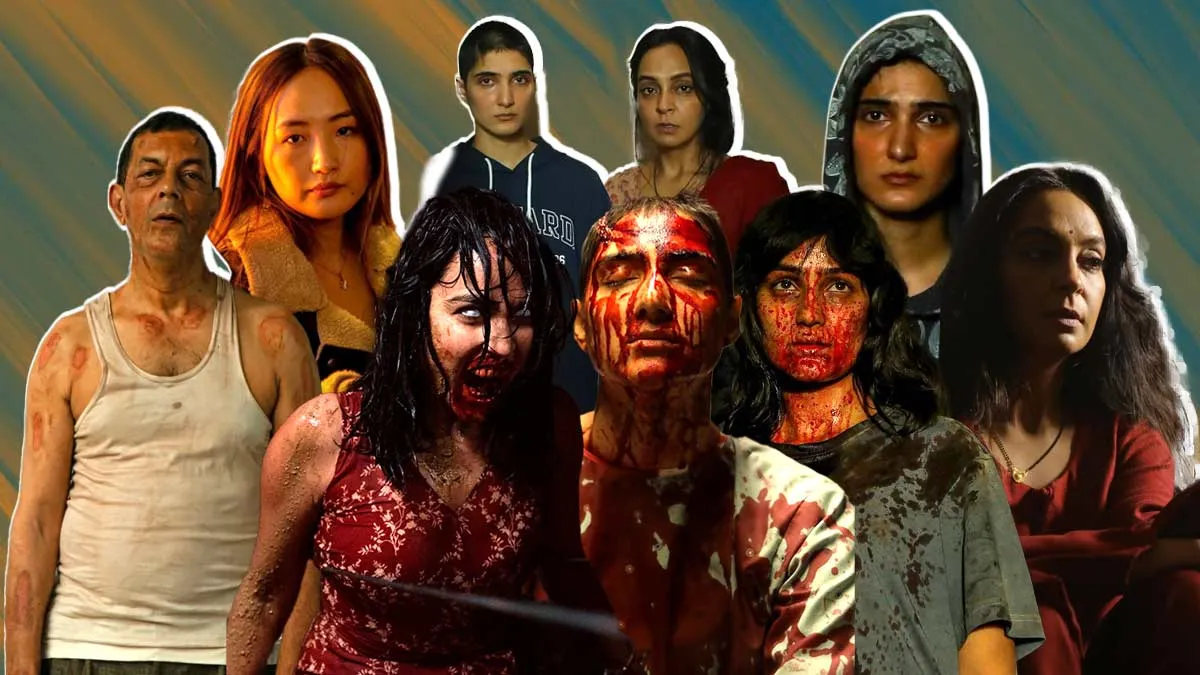
In Khauf, the true monster isn’t supernatural—it’s systemic. The show doesn’t just flirt with fear, it dismantles it, strips it bare, and reveals the patriarchal machinery behind it. For perhaps the first time in Indian horror, terror isn’t sparked by shrouded figures or unexplained swinging doors in the middle of the night. It’s about things that silence women in broad daylight.
The Hindi horror series ‘Khauf’ premiered on April 18, 2025, and is available for streaming on Amazon Prime Video. It stars Rajat Kapoor and Monika Panwar.
Set in a Delhi women’s hostel, Khauf captures the zeitgeist of a society steeped in control, shame, and fear. It doesn’t manufacture horror—it documents it. From the stifling isolation of a woman facing racial bias to the chilling memory of a dead girl whose voice was never heard, every frame reflects the emotional landscape of a gender that has historically been gaslit, dismissed, and haunted by the structures meant to keep them "safe."
View this post on Instagram
This is horror personified—not as a ghost, but as patriarchy itself. It stalks, punishes, erases, and then even goes on to dare women to call it “normal.” And in Khauf, they finally find the courage to speak back.
Through its strong characters and haunting narratives, Khauf urges society to acknowledge and address the real monsters lurking in plain sight.
Khauf unfolds in a Pragati Working Women's Hostel in Delhi, where Madhuri (Monika Panwar), a young woman fleeing a traumatic past in Gwalior, hopes to rebuild her life. But what seems like a fresh start soon unravels into a chilling psychological descent. The hostel is haunted—not just by the ghost of Anu (Asheema Vardaan), a former resident who died under mysterious circumstances—but by the everyday horrors the women endure.
Each resident embodies a different kind of dread, Svetlana (Chum Darang) battles racial alienation as a Northeastern woman. Rima (Priyanka Setia) faces societal condemnation for giving birth to a girl. Nikki (Rashmi Zurail Mann) is ridiculed for her stutter and emotional vulnerability; and Komal (Riya Shukla) carries the weight of unspoken trauma.
Even authority figures like the warden Gracie and police constable Illu Mishra are not spared—they're survivors of abusive relationships, now guarding others while fighting their own demons.
View this post on Instagram
As the story unfolds, it becomes clear that the ghost is not the real horror element—it's the invisible violence, gaslighting, and fear that women navigate daily. Khauf weaves these threads into a chilling, genre-bending tale that uses horror not just to scare—but to confront.
Directed by Surya Balakrishnan and Pankaj Kumar (Tumbbad, Haider), Khauf uses horror not as spectacle but as language. The ghost here doesn’t terrify—it exposes. It intensifies the fear already woven into public transport, relationships, and city streets. Delhi itself becomes a character—offering shelter but never safety.
Don't Miss: Netflix’s You Season 5 Arrives Thursday: Ranking Joe Goldberg’s Love Interests, Strongest To Weakest
The genius of Khauf lies in its subversion. It isn’t about who the ghost is; it’s about why it’s there in the first place. It forces us to reckon with the fact that for many women, horror doesn’t begin with the supernatural—it begins at home, on the street, and is often acknowledged and tolerated, in silence.
Smita Singh’s writing makes it clear: this isn’t fiction. This is a documentary of dread.
View this post on Instagram
Khauf doesn’t offer easy catharsis. There’s no exorcism that rids the world of patriarchy. Instead, it leaves us with discomfort—a gnawing, necessary unease. Because the horror doesn’t end when the credits roll. It lingers. It stays in the stairwells, in the silence after a catcall, in the bruises that don’t show.
This is what makes Khauf revolutionary. It doesn’t just reflect our reality—it indicts it. It forces viewers, especially men, to sit with the fear women are taught to navigate every day. Not fear of the unknown, but of the all-too-familiar. Of not being believed. Of being watched. Of being punished for simply existing.
In the end, Khauf isn’t just a horror series. It’s a haunting reminder that the scariest stories women face aren’t imagined—they’re endured. And for those of us who’ve never lived that fear, it’s time we start listening.
And finally, someone dared to write them down.
Don't Miss: Loved Khauf? These 5 Horror Series on Netflix, JioHotstar, and Prime Video Will Also Give You Similar Creeps
For more such stories, stay tuned to HerZindagi.
Also watch this video
Herzindagi video
Our aim is to provide accurate, safe and expert verified information through our articles and social media handles. The remedies, advice and tips mentioned here are for general information only. Please consult your expert before trying any kind of health, beauty, life hacks or astrology related tips. For any feedback or complaint, contact us at [email protected].